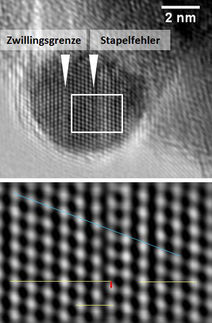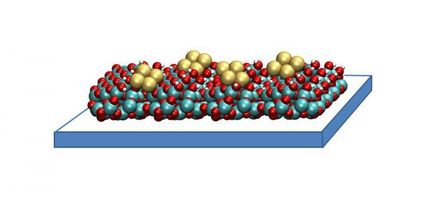A catalyst for sustainable methanol
Scientists at ETH Zurich and oil and gas company Total have developed a new catalyst that converts CO2 and hydrogen into Methanol. Offering realistic market potential, the technology paves the way for the sustainable Production of fuels and chemicals.
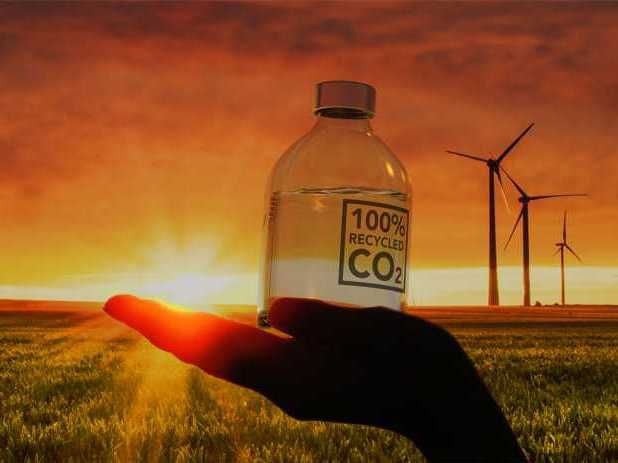
The technology makes it possible to recycle CO2 and produce methanol from it.
ETH Zürich / Matthias Frei
The global economy still relies on the fossil carbon sources of petroleum, natural gas and coal, not just to produce fuel, but also as a raw material used by the chemical industry to manufacture plastics and countless other chemical compounds. Although efforts have been made for some time to find ways of manufacturing liquid fuels and chemical products from alternative, sustainable resources, these have not yet progressed beyond niche applications.
Scientists at ETH Zurich have now teamed up with the French oil and gas company Total to develop a new technology that efficiently converts CO2 and hydrogen directly into methanol. Methanol is regarded as a commodity or bulk chemical. It is possible to convert it into fuels and a wide variety of chemical products, including those that today are mainly based on fossil resources. Moreover, methanol itself has the potential to be utilised as a propellant, in methanol fuel cells, for example.
Nanotechnology
The core of the new approach is a chemical catalyst based on indium oxide, which was developed by Javier Pérez-Ramírez, Professor of Catalysis Engineering at ETH Zurich, and his team. Just a few years ago, the team successfully demonstrated in experiments that indium oxide was capable of catalysing the necessary chemical reaction. Even at the time, it was encouraging that doing so generated virtually only methanol and almost no by-products other than water. The catalyst also proved to be highly stable. However, indium oxide was not sufficiently active as a catalyst; the large quantities needed prevent it from being a commercially viable option.
The team of scientists have now succeeded in boosting the activity of the catalyst significantly, without affecting its selectivity or stability. They achieved this by treating the indium oxide with a small quantity of palladium. “More specifically, we insert some single palladium atoms into the crystal lattice structure of the indium oxide, which anchor further palladium atoms to its surface, generating tiny clusters that are essential for the remarkable performance,” explains Cecilia Mondelli, a lecturer in Pérez-Ramírez’s group. Pérez-Ramírez points out that, with the aid of advanced analytical and theoretical methods, catalysis may now be considered nanotechnology, and in fact, the project clearly shows this to be the case.
The closed carbon cycle
“Nowadays, deriving methanol on an industrial scale is done exclusively from fossil fuels, with a correspondingly high carbon footprint,” Pérez-Ramírez says. “Our technology uses CO2 to produce methanol.” This CO2 may be extracted from the atmosphere or – more simply and efficiently – from the exhaust discharged by combustion power plants. Even if fuels are synthesised from the methanol and subsequently combusted, the CO2 is recycled and thus the carbon cycle is closed.
Producing the second raw material, hydrogen, requires electricity. However, the scientists point out that if this electricity comes from renewable sources such as wind, solar or hydropower energy, it can be used to make sustainable methanol and thus sustainable chemicals and fuels.
Compared to other methods that are currently being applied to produce green fuels, Pérez-Ramírez continues, this technology has the great advantage that it is almost ready for the market. ETH Zurich and Total have jointly filed a patent for the technology. Total now plans to scale up the approach and potentially implement the technology in a demonstration unit over the next few years.
Original publication
Most read news
Original publication
Frei MS, Mondelli C, Garcia-Muelas R, Kley KS, Puértolas B, López N, Safonova O, Stewart JA, Curulla Ferré D, Pérez-Ramírez J: "Atomic-scale engineering of indium oxide promotion by palladium for methanol production via CO2 hydrogenation."; Nature Communications, 2019.
Organizations
Other news from the department science

Get the chemical industry in your inbox
By submitting this form you agree that LUMITOS AG will send you the newsletter(s) selected above by email. Your data will not be passed on to third parties. Your data will be stored and processed in accordance with our data protection regulations. LUMITOS may contact you by email for the purpose of advertising or market and opinion surveys. You can revoke your consent at any time without giving reasons to LUMITOS AG, Ernst-Augustin-Str. 2, 12489 Berlin, Germany or by e-mail at revoke@lumitos.com with effect for the future. In addition, each email contains a link to unsubscribe from the corresponding newsletter.
Most read news
More news from our other portals
Last viewed contents
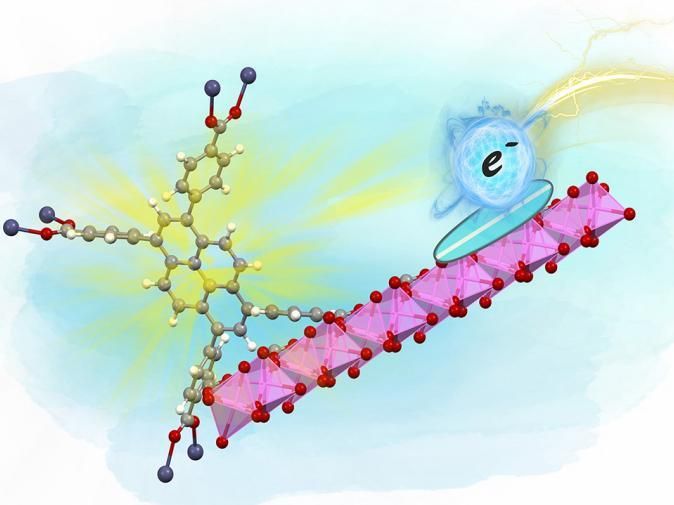
Catalyzing a green future - Highly modular metal-organic framework-based materials show great potential for photocatalytic hydrogen production

Battery recycling: cooperation between Nigeria and Germany launched - Lead-acid battery recycling – risks and opportunities for the circular economy
Dow Corning Achieves Quality Milestones In Silicon Carbide Semiconductor Manufacturing - Improvements move silicon carbide device technology closer to high volume manufacturing

Meta-surface corrects for chromatic aberrations across all kinds of lenses - Single-layer surface of nanostructures can be incorporated into commercial optical systems
Ethylene Market in Transition: Ceresana Analyzes World Market for the Most Important Basic Chemical

Merck to lead OLED research - Launches joint project to conduct basic research on quantum materials as light sources

Holcim, thyssenkrupp Uhde and TU Berlin test innovative process for carbon capture - High-purity CO2 as feedstock
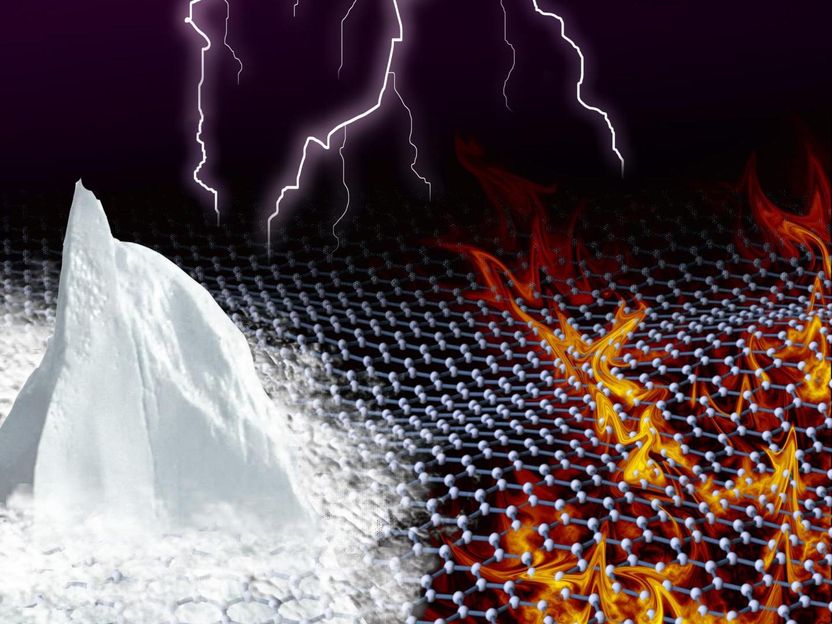
The hidden inferno inside your laser pointer
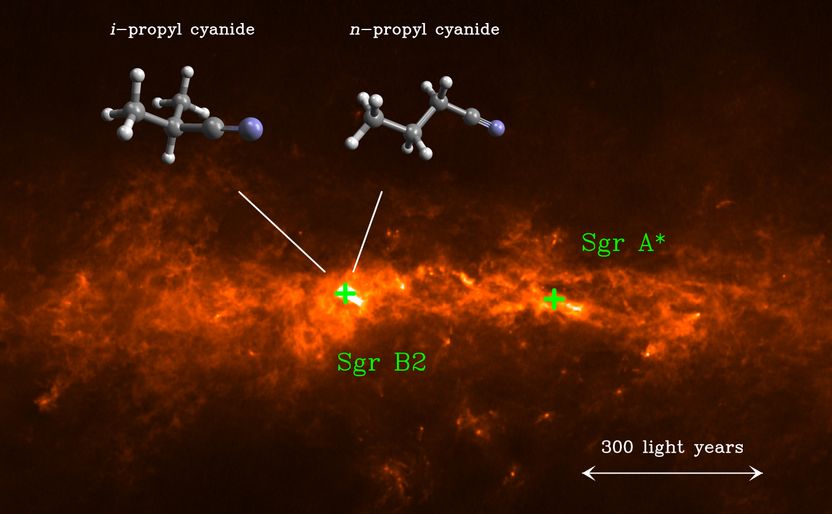
Interstellar molecules are branching out

